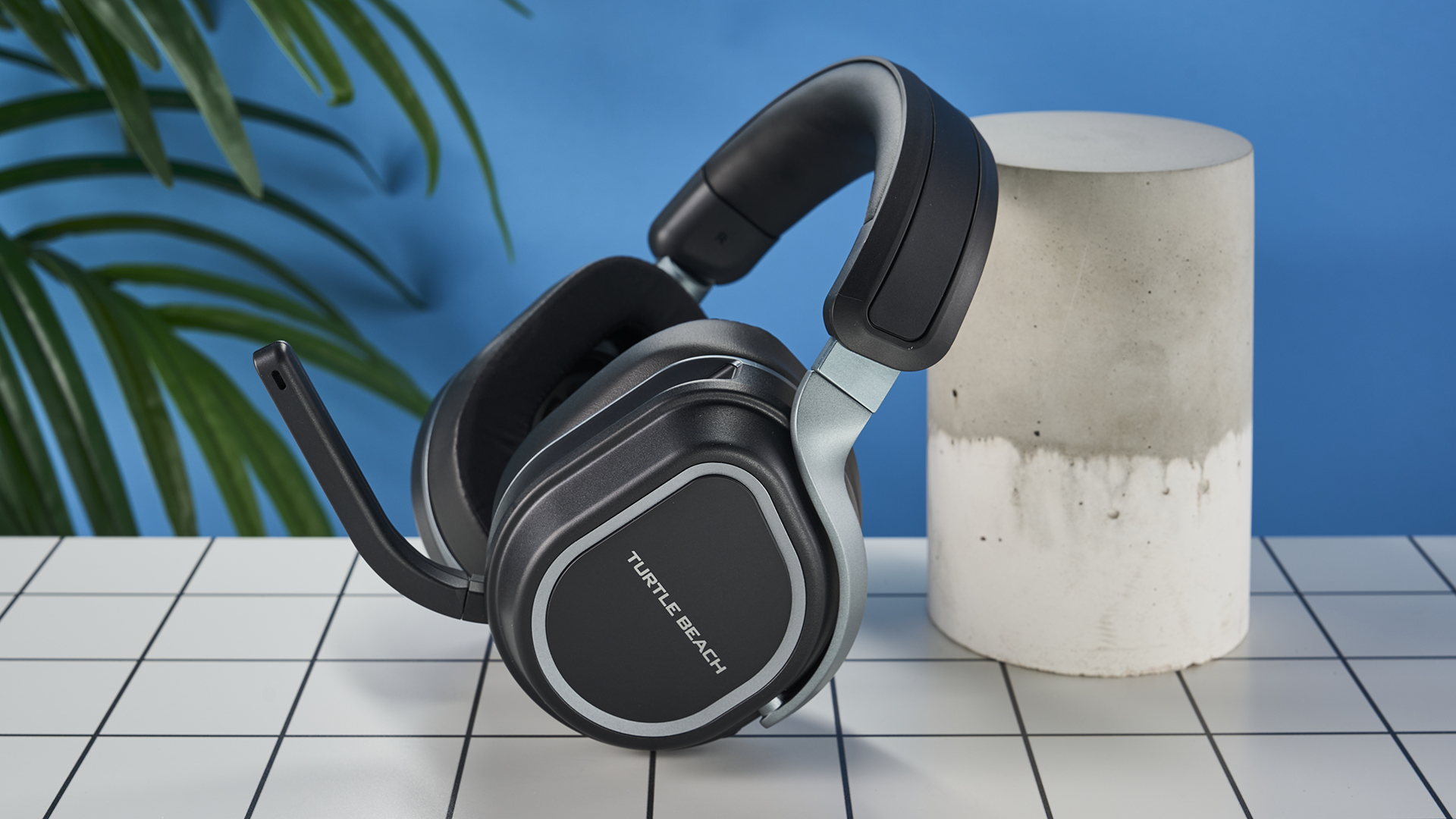
The newest headset from Turtle Beach, the third-generation Stealth 700, really took me by surprise. With a name reminiscent of a fighter jet, the new model of the Stealth 700 series delivers spectacular audio and excellent functionality that makes it well suited for competitive and casual play alike.
As impressed as I was, the headset has some stiff competition. The Stealth 700’s cheaper wingman, the Turtle Beach Stealth 600 Gen 3 ($99), offers a comfortable fit at a cheaper price, and it doesn’t quite soar above best in class headsets like the SteelSeries Arctis Nova 5 ($129), despite the cheaper price.
Nevertheless, there are several great reasons to consider the Stealth 700 over its rivals, and I’dd go as far as to call it one of the best gaming headsets you can buy right now. The AI-powered noise-canceling mic and easy connectivity make the Turtle Beach Stealth 700 Gen 3 a must-have headset for me.
Read on for my full Turtle Beach Stealth 700 Gen 3 review.
Turtle Beach Stealth 700 Gen 3 review: Cheat Sheet
- What is it? A wireless gaming headset
- Who is it for? Multi-platform gamers who are able to spend a little bit more on a pair of mid-range cans
- What does it cost? $199 at both Amazon and the Turtle Beach website, with different editions for PC, Xbox and Playstation
- What do we like? The audio quality is as immersive as it is competitive, with a microphone that performs admirably, along with simultaneous Bluetooth and 2.4G connectivity
- What don’t we like? The fit is not very comfortable, and the wireless-only connection isn’t the best for those after the highest quality audio
Turtle Beach Stealth 700 Gen 3 review: Specs
Turtle Beach Stealth 700 Gen 3 review: The ups
The Stealth 700 boasts an impressive design that houses a great pair of headphones and an uncompromising microphone. The companion app lets you configure the headset to your preference, while multi-device connectivity helps keep your focus on the game.
Design
The Stealth 700 looks fantastic, with a sleek, subtle design that could be mistaken for a pair of regular headphones. This is because of the fold-up, rigid plastic microphone — blending seamlessly with the headset, and making it so discreet I initially struggled to find it. The color scheme on my model was a simple black and gray, with the only real ‘gamer’ signifier being the “Turtle Beach” logo on the side of the ear cup.
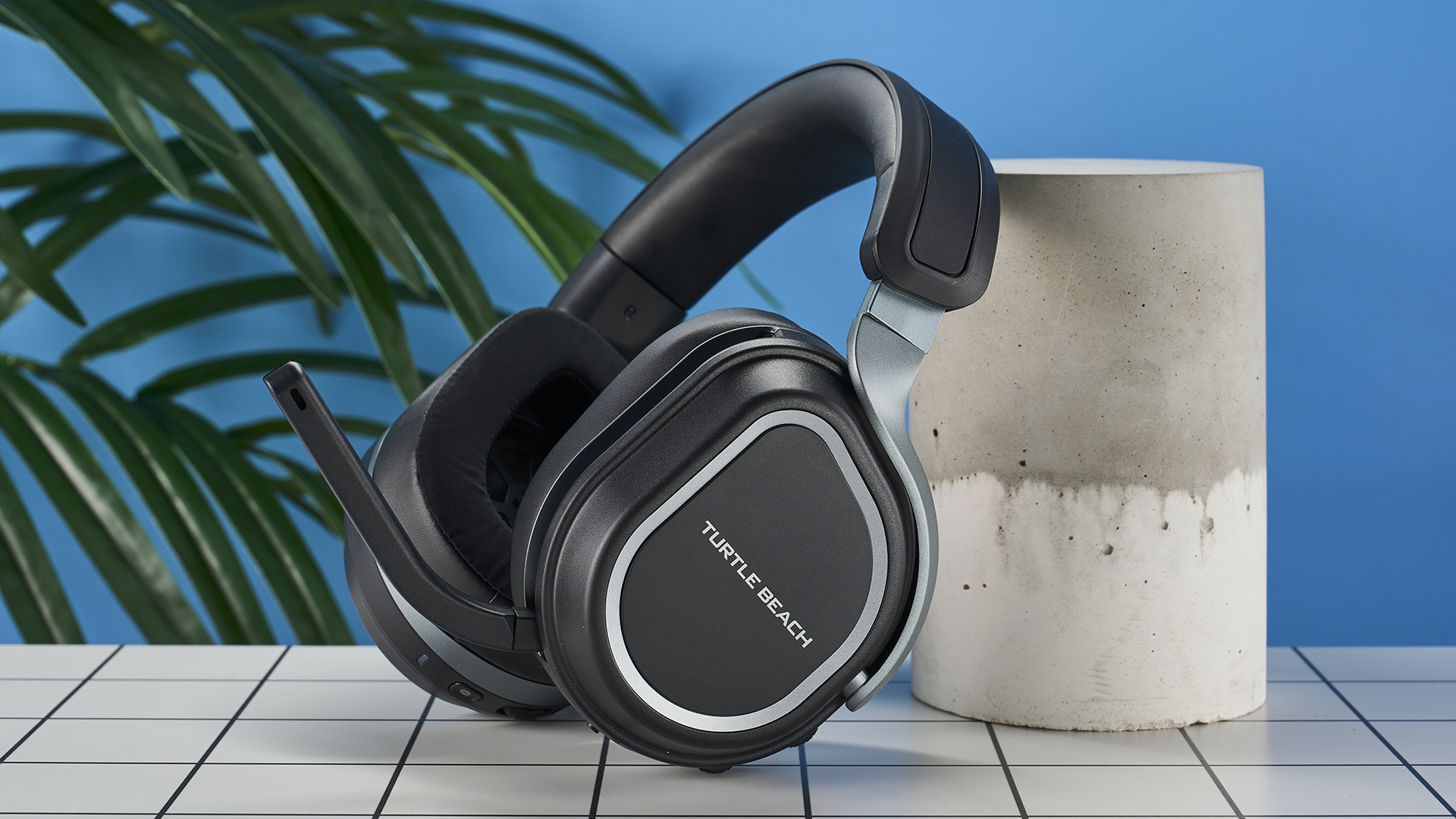
Pair that with a premium construction with high quality materials, and you’re onto a winner that feels substantial both in your hands and on your head (although there are drawbacks that I’ll talk about later). The use of a hybrid leatherette on both the ear cushion and headband also gives the headset some added durability, although this doesn’t exactly deliver on comfort (again, more on that below).
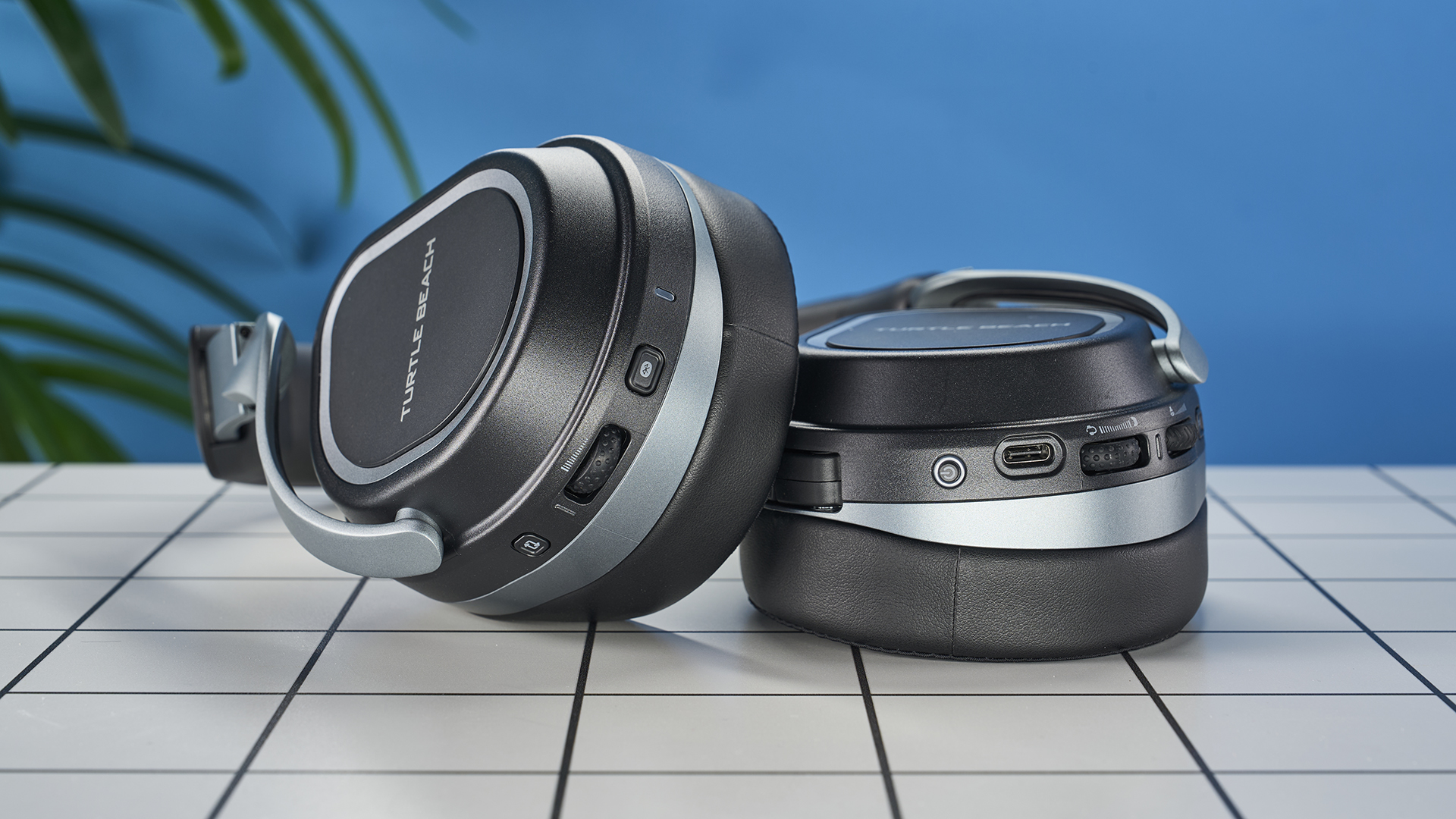
The headset features a wealth of onboard buttons, surpassing that of previous models like the Stealth 600. There is a separate wheel for microphone controls and a rebindable ‘mode’ button, configurable using the Swarm II app.
Sound
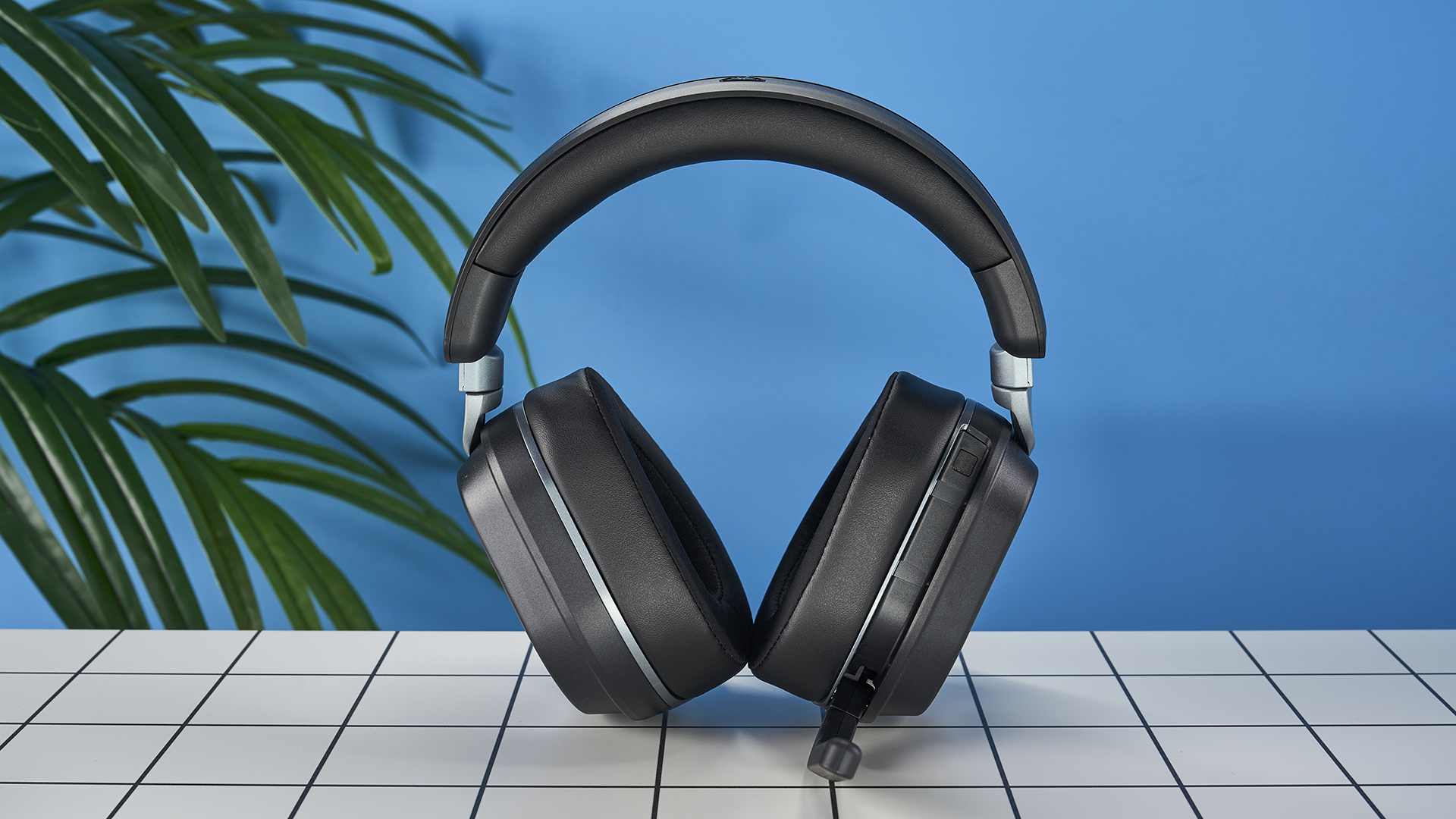
The standout aspect of the Stealth 700 is its sound quality, which performed excellently for both games and multimedia in testing.
The headset’s 60mm drivers deliver an immersive soundstage, making me feel fully immersed in games like Squad and World of Warcraft: The War Within. These cans also impressed with music too, delivering deep bass and crisp treble while listening to Tyler, the Creator’s Chromakopia, despite its modest 20Hz-20kHz frequency range compared to pricier audiophile headsets like the Beyerdynamic MMX 300 Pro.
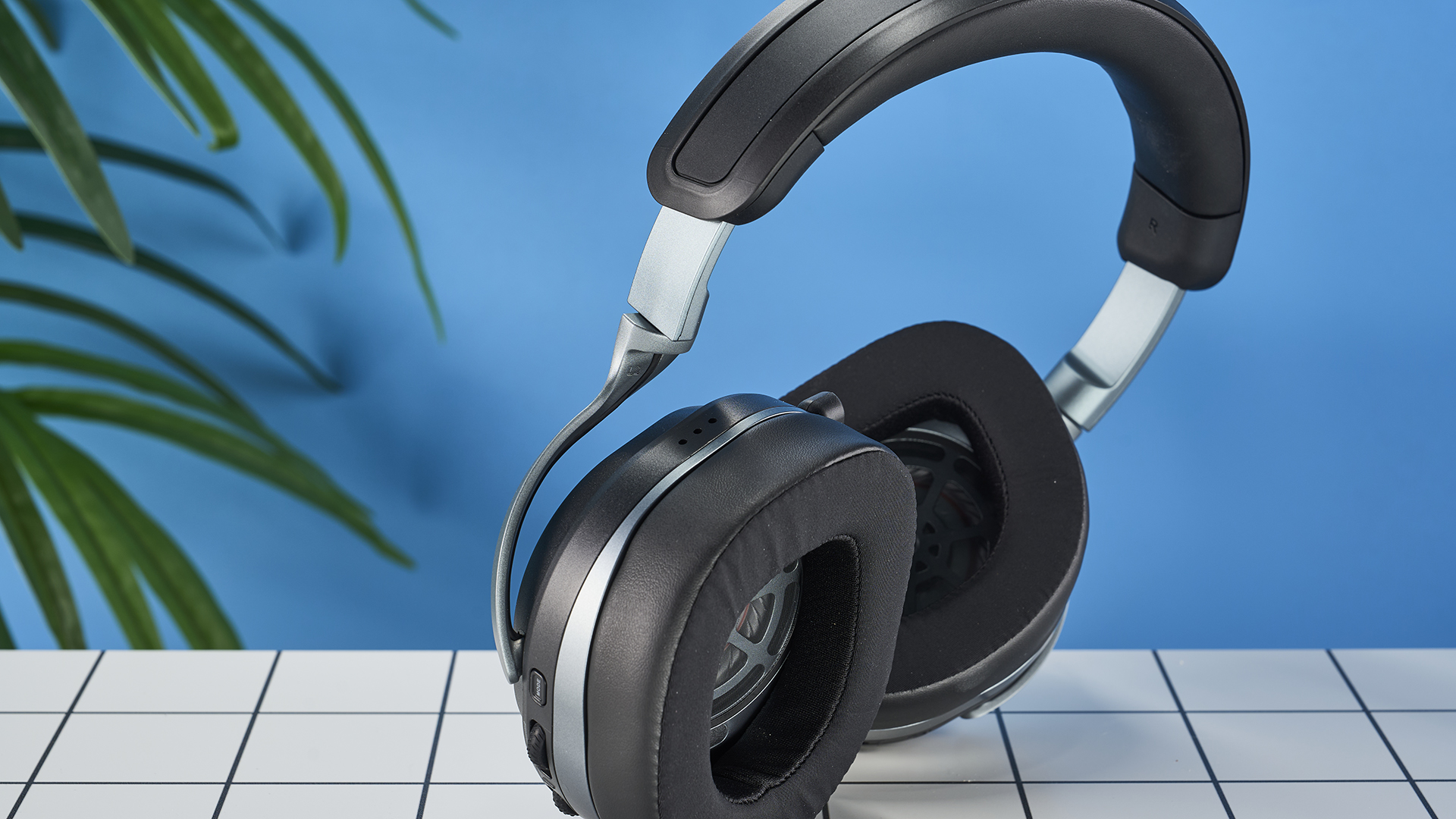
The headset also features accurate spatial audio, which makes tactical shooters like Valorant a joy to play. I was able to pick up on minor noises without having to crank up the volume too loud, which gave me a competitive edge. This also came in handy in Escape from Tarkov, a game that often frustrates me with the need to crank up the volume to hear the tiniest noises, only to be near-deafened by gunshots. This was much less of an issue when using the Stealth 700, and my performance (and enjoyment) increased as a result.
AI-powered microphone
I am someone who insists on using a USB microphone over a headset mic, as too often the latter perform far below my expectations. Imagine my shock to hear that the microphone on this headset sounded pretty good — I don’t think there is a headphone and mic combination that outperforms what I have with the Stealth 700.
You shouldn’t expect the most high-fidelity sound compared to one of the best microphones in a standalone setup, but with the Stealth 700 my voice comes through punchy and clear. Unlike other headset microphones, like on the MMX 300, there aren’t any issues with volume levels or clarity.
There isn’t much in the way of physical adjustments, with the mic only able to be flipped out from the headset and twisted slightly towards your mouth. That being said, even with the mic further from my mouth than usual, it clearly captured my voice while minimizing background noise.
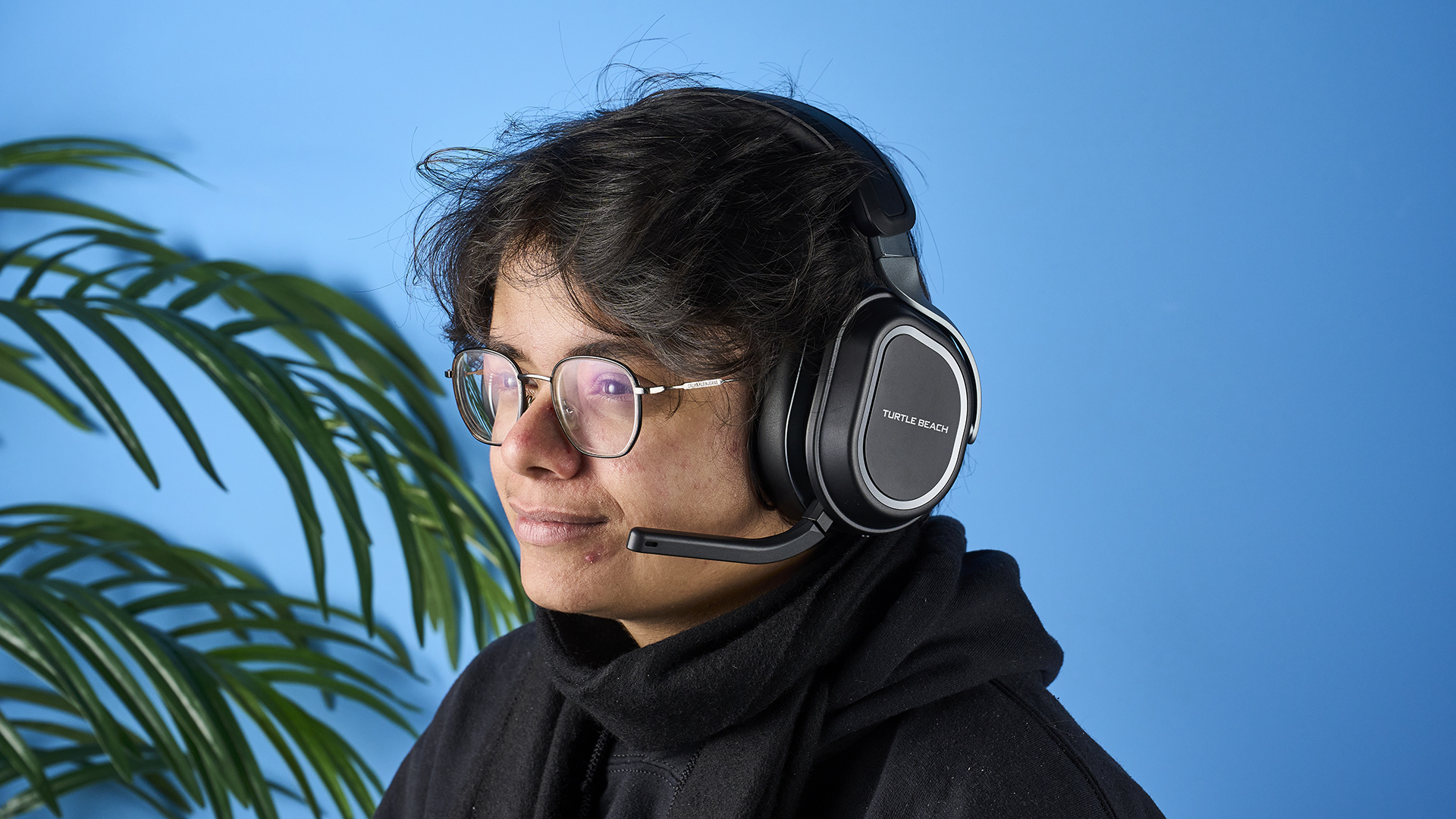
The AI element of the microphone involves background noise elimination. While calling this AI is a little dubious, it nevertheless worked very well. It eliminated background sounds, whether they were from my keyboard or whirring desktop PC, as well as the noise from the busy street outside my house. I was able to tweak the noise gate using the Swarm II app, but the default amount worked great for the background noise levels at my desk.
Connectivity
Something I love about the Stealth 700 is that two Wi-Fi transmitters are included, in addition and Bluetooth support. Using the well-placed headset buttons, you can toggle between two USB dongles — great if you are using the headset for a combined console and PC setup. This worked flawlessly in my testing, and saved me having to switch dongles between devices.
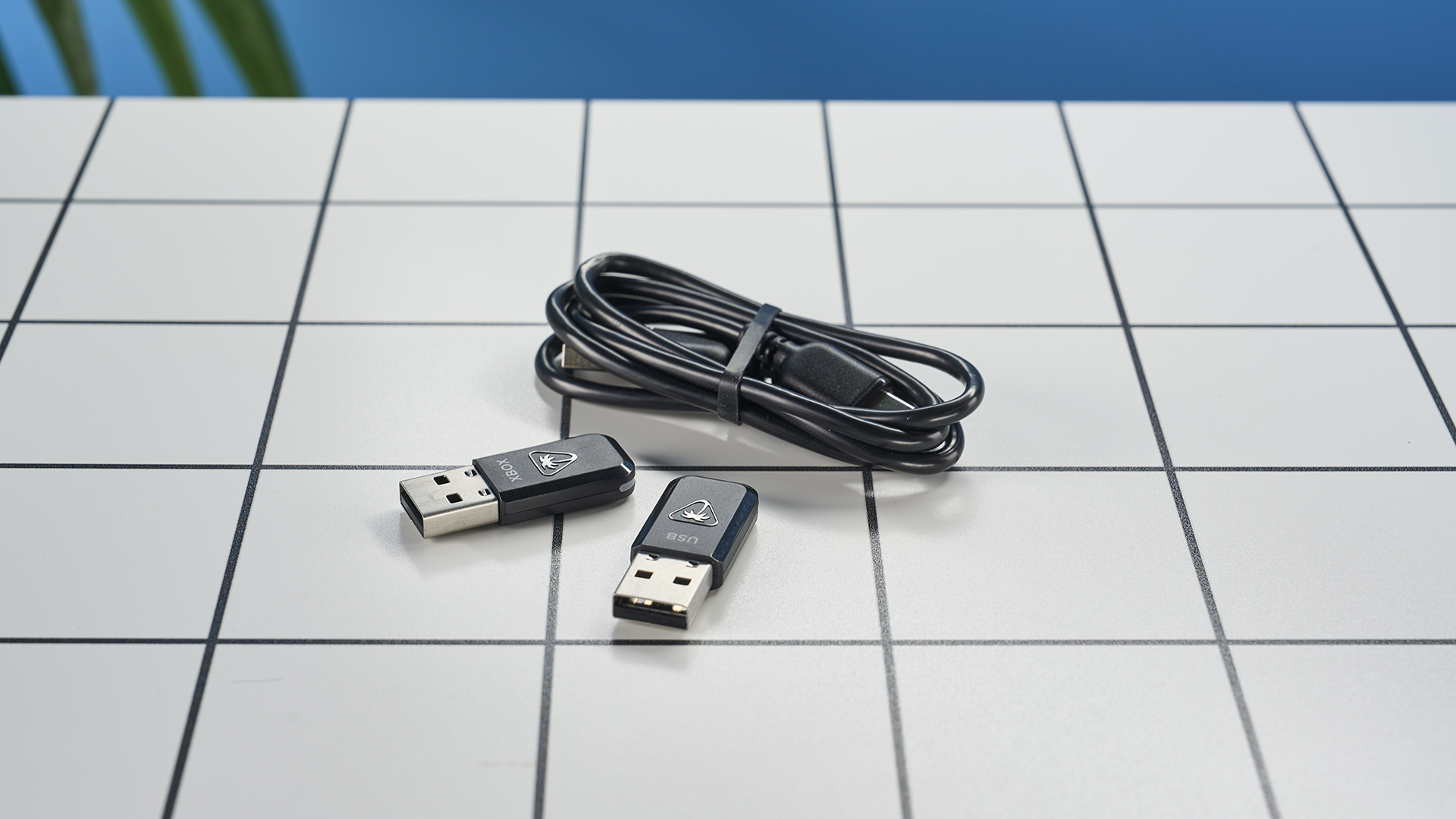
You can also connect the headset to a USB transmitter and Bluetooth at the same time, which allowed me to play on a console while listening to music on my phone. This headset is perfect for multitaskers like me who want to game, scroll social media, and watch TV all with one device.
The cherry on the cake is the Stealth 700’s long lasting battery, which can go for as long as 80 hours. This puts it above the Stealth 600 and 500, as well as the SteelSeries Arctis Nova 5.
Companion app
The Stealth 700 uses the Swarm II companion app, and I am a big fan. All of the in-app settings are laid out in an easy to access list format, and there’s a decent depth of customization. I value the unlimited EQ profiles and precise microphone adjustments, a feature often overlooked in other headsets.
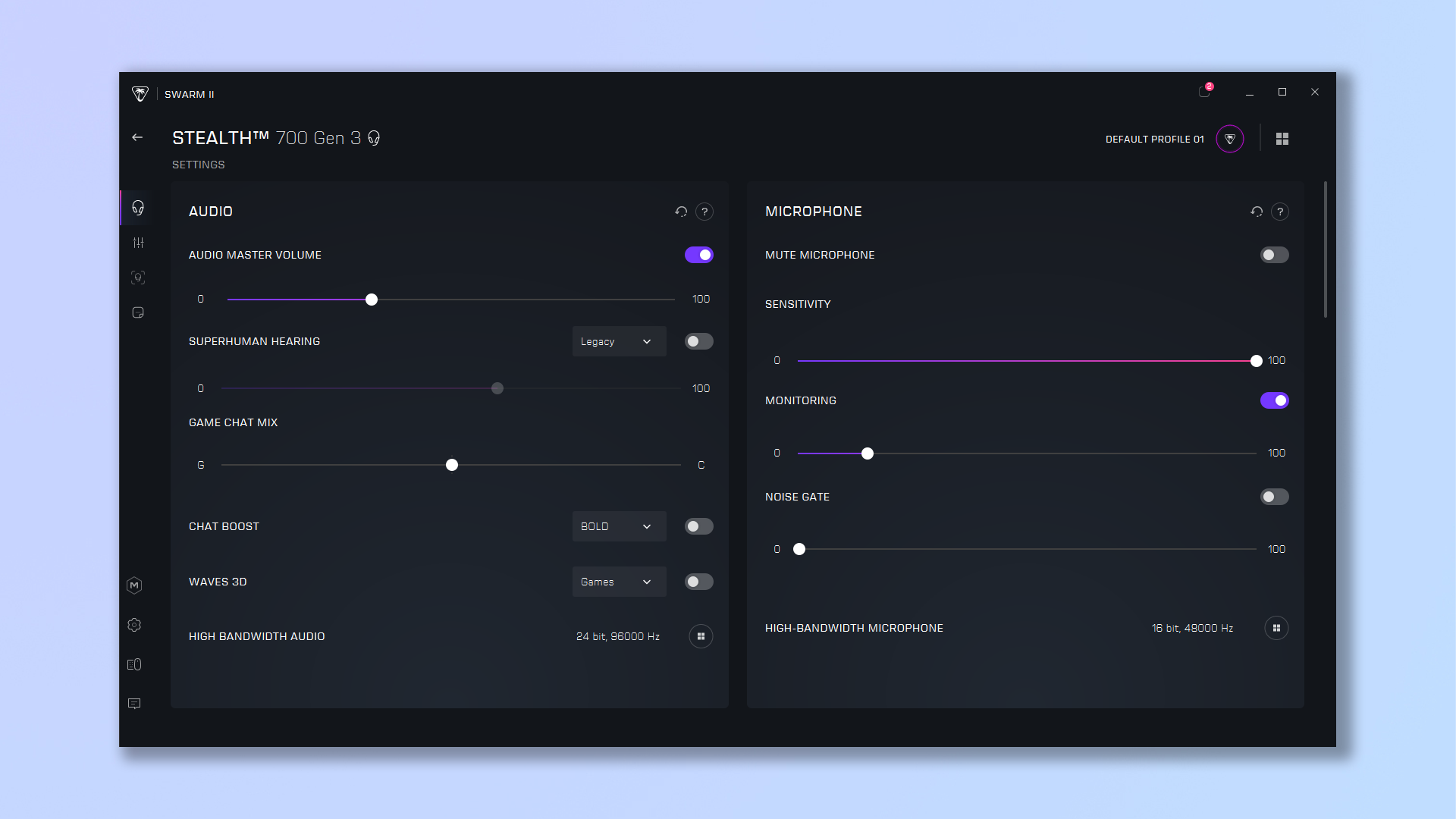
I didn’t find myself using some of the features, such as “superhuman hearing’,” as I found this led to a less accurate soundscape in competitive games. With that being said, it does work well to boost footsteps and gunshots, which might be of use to those who usually struggle to notice sound cues in game.
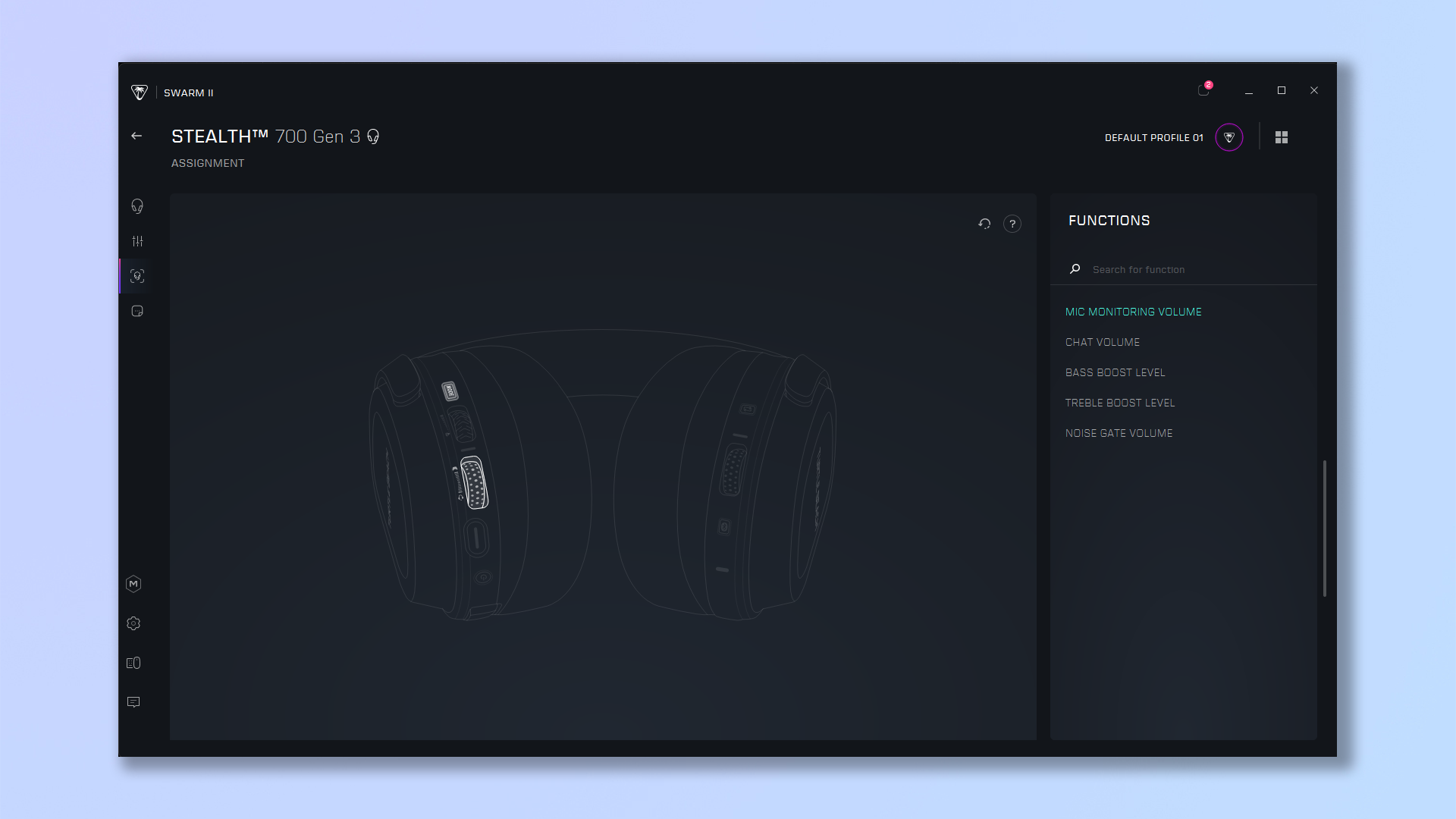
There is also a mobile app, which provides the same settings on the go. I particularly like being able to connect to my phone to adjust my EQ, complementing the already convenient dual connectivity.
Turtle Beach Stealth 700 Gen 3 review: The downs
The Stealth 700 is great, but gets some of the basics wrong. Some disappointing design choices make the headset frustratingly uncomfortable, souring the otherwise uncompromising performance.
Poor adjustment
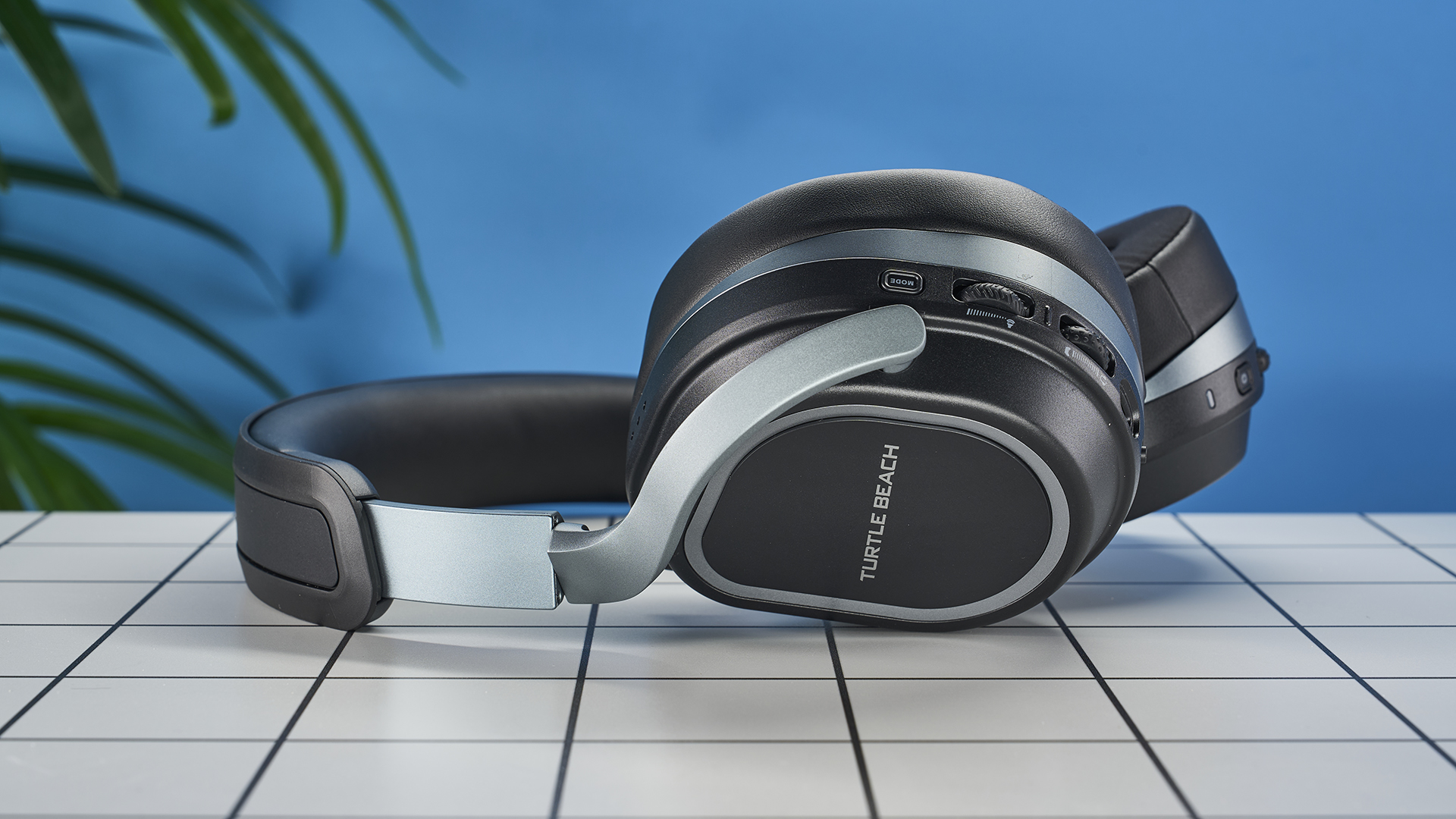
Adjusting the Stealth 700 to fit is more of a struggle than it should be. The adjustable slide is stiff to operate, and doesn’t extend far enough. It was just about big enough for my head, so if you’re the proud owner of a large head, you might want to avoid this one. It’s still a lot better than the velcro strap adjustment on the Atlas Air, but at least that strap is highly adjustable to cater for a variety of head shapes.
Uncomfortable fit
For a headset called the ‘Stealth’, this headset isn’t very stealthy. It has a bulky design, with the earcups protruding out quite a lot, and it feels pretty big on my head. This headset is mainly for stationary use, so walking comfort isn’t an issue, but you’ll notice its weight while sitting. The Stealth 700 weighs in at 14.3 ounces — heavier than the MMX300 or the Sony Inzone H9, each 11 ounces — and it just doesn’t feel good to have that sort of weight hanging off your head while at your desk. This made my neck ache after just a short gaming session.
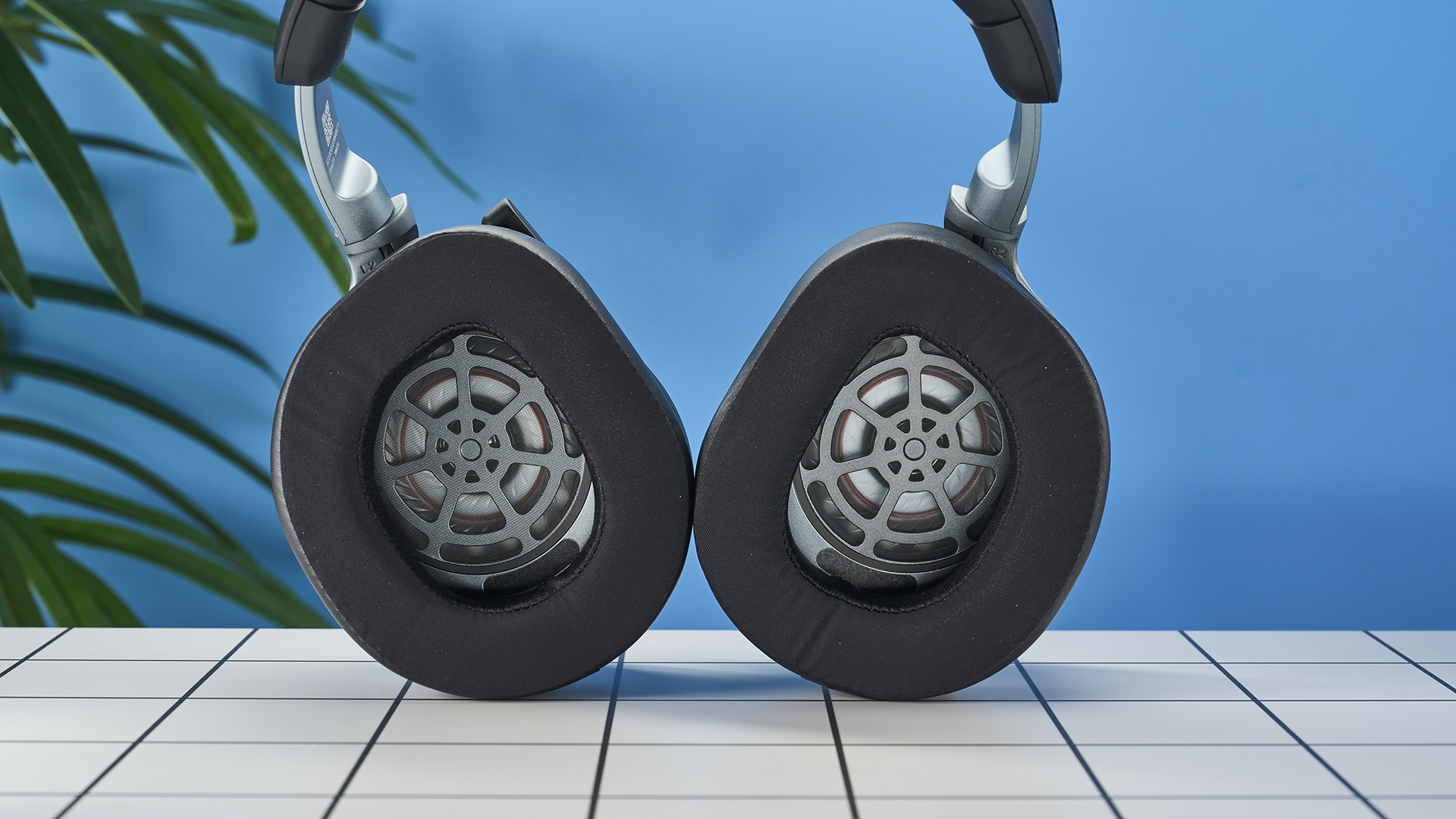
I’m also not a fan of the earcups. Like the Stealth 600, they’re padded using memory foam, but the 700 opts for a smooth leatherette outer material that reminds me of one of a low-quality gaming chair. The leathery texture felt uncomfortable, and the earcups pressed against my head, forcing my ear against the exposed speaker. I much preferred the design and soft pads of the Atlas Air and the Stealth 600 over the new design.
These ear cushion problems were a big hindrance to my enjoyment of the headset, and there are far cheaper headsets which get comfort right. The SteelSeries Arctis Nova 5, for instance, has velvety soft earcushions that don't cause any problems.
No wired connection
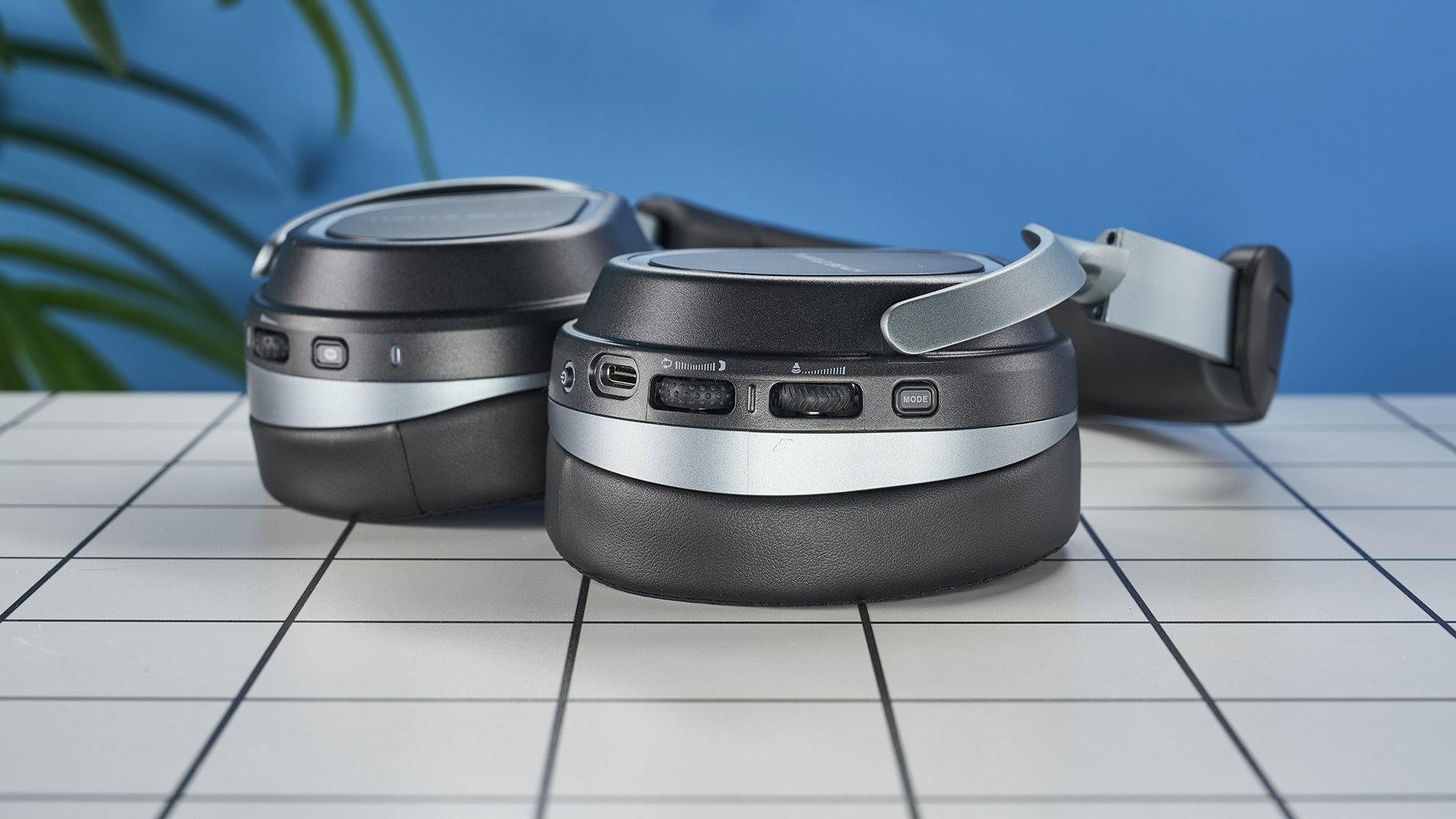
I didn’t find the wireless adapters or Bluetooth to be detrimental to the overall sound quality, but with drivers this good, I would have loved to make the most of them with a 3.5mm jack. A wired connection could help improve the audio quality further by making it lossless — something that wired headsets like the Turtle Beach Atlas Air ($179) and Logitech G Pro X ($130) offer. This would also make the headset a great option for listening to high res music.
Turtle Beach Stealth 700 Gen 3 review: Verdict
The Turtle Beach Stealth 700 Gen 3 surpassed my initial expectations. This is a headset that performs well, while having a wealth of features and functionality to keep the user experience as convenient as possible. The amount of customization available means that the Stealth 700 is a great choice if you want to personalize your sound.
At $199, it is a little pricey, and there are headsets that can offer a more comfortable experience for much cheaper. Likewise, I really enjoyed the sound performance of the 700, but there are equally high-quality headsets for $70 cheaper, like the SteelSeries Arctis Nova 5.
With that being said, I was impressed with what this headset had to offer. The third generation Stealth 700 really snuck up on me and became one of my favorite headsets.







